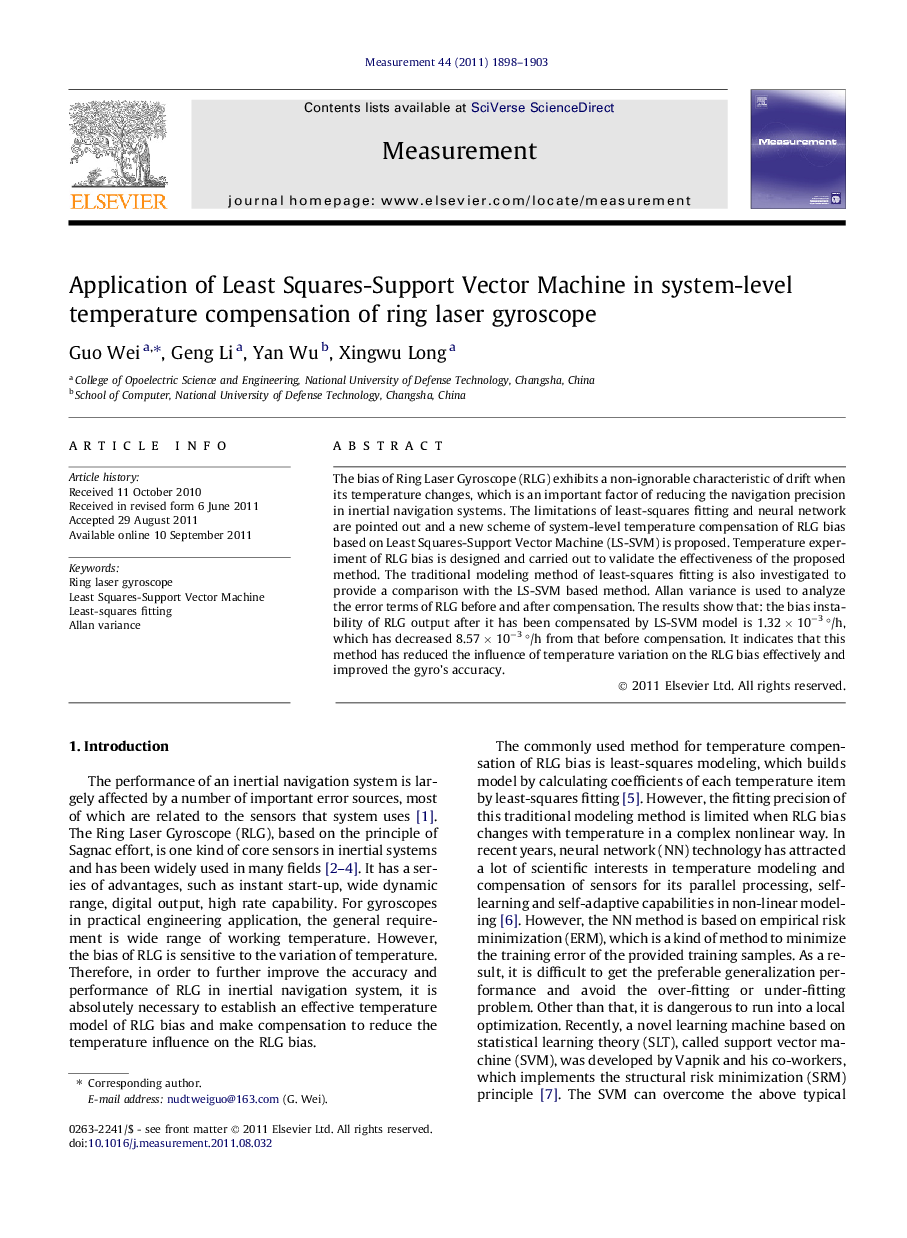| Article ID | Journal | Published Year | Pages | File Type |
|---|---|---|---|---|
| 730436 | Measurement | 2011 | 6 Pages |
The bias of Ring Laser Gyroscope (RLG) exhibits a non-ignorable characteristic of drift when its temperature changes, which is an important factor of reducing the navigation precision in inertial navigation systems. The limitations of least-squares fitting and neural network are pointed out and a new scheme of system-level temperature compensation of RLG bias based on Least Squares-Support Vector Machine (LS-SVM) is proposed. Temperature experiment of RLG bias is designed and carried out to validate the effectiveness of the proposed method. The traditional modeling method of least-squares fitting is also investigated to provide a comparison with the LS-SVM based method. Allan variance is used to analyze the error terms of RLG before and after compensation. The results show that: the bias instability of RLG output after it has been compensated by LS-SVM model is 1.32 × 10−3 °/h, which has decreased 8.57 × 10−3 °/h from that before compensation. It indicates that this method has reduced the influence of temperature variation on the RLG bias effectively and improved the gyro’s accuracy.
► The deficiencies of the temperature compensation of individualistic RLG are analyzed. ► We propose the method of using LS-SVM in system-level temperature compensation of RLG. ► Allan variance is used to analyze the error terms of RLG before and after experiment.
